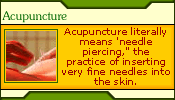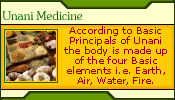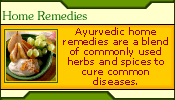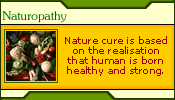|
Oja is the essence of dhatus, which gives strength to the body,
improves immunity power and takes care of well being of the body.
It is present all through the body like ghee exists in the milk
or honey exists in the flower.
Oja Swaroop
These are the various forms (swaroop) in which Oja exists:
- Snigdha is viscous.
- Samatmaka is preponderant in apbhuta or watery.
- Shuddha, ishat Lohita Peetvarna is clear i.e. transparent, slightly
reddish, yellow in colour.
- Sarpi Varna has a Ghee like appearance.
- Laja Gandhi has a smell like laja.
- Madhur Rasan is sweet in taste.
Oja Sthan (dwelling place)
there are two places where Oja prevails:
Hridya sthan- in the heart
Vyapi- all over the body like ghee in milk or honey in flower)
Oja Karma (function)
the function of Oja can be summed up as Dehasthitini bandhanam.
This means that to maintain the condition of the good health it
nourishes all the body constituents and mind. Moreover, it controls
or promotes all the physiological activities and is responsible
for lively condition of the body and immunity power of the body.
In ayurveda it is believed that life cannot exist without Oja in
the body.
Oja Prakar (types)
there are two types of Ojas:
Para Oja- that prevails all
over the body and its quantum is one anjali.
Apara oja- is present in the
heart in a quantum of eight bindu (drops). Its appearance is Shudhan
(clear or transparent), reddish yellow in colour.
Oja Vikriti (deformity)
the deformities of Oja are of three types:
Visransa
It has its origin in the dwelling place itself. This has signs
and symptoms of lax in muscles and bone joints, lethargy in organs,
displacement of Vata. It also results in the impairment of Kayik
(physical), Vachik (vocal) and Mansik (mental) functions of the
body.
Vyapad
Oja when get vitiated by doshas then it is Vyapad dosha condition.
Following are the signs & symptoms that occur in this condition
- heaviness in the body, freezing of joints like knee joint etc.
Vatik shofa (swelling due to vata dosha impairment), Varna parivartan
(discolouration), Glani (depression), Tandra (drosyness) and Nidra
(sleep).
Kshaya
It is the decrease of the quantum of Oja. Following sign &
symptoms developed at this condition- Murchha (convulsion) Mansa
Kshaya (decrease of Mansa Dhatu etc.), Moha (pre coma), Agyan (loss
of sense), Pralap (delirium) and Mrityu (death).
Sign & Symptoms of Oja Kshaya
Not one but many symptoms and signs indicate the deformity of Oja
Kashaya, like:
- Vibheti- Fear
- Durbalo abhikshanam- physically and mentally weak
- Vyathit Indriya- discomfort in sense organ
- Duschhaya- impaired color
- Durmana- impaired mentally
- Ruksha- Dryness
- Kshama- impaired complexion
Factor responsible for Oja Kshaya
for the effective cure of Oja Kashay it must be kept in mind that
what factor lead to this diseased situation. Following are the factors
that contribute for the arise of this disease:
- Abhighatat- Trauma
- Kshayat- Loss of Dhatus
- Kopat- Anger
- Shokat- Grief
- Dhyanat- Tension i.e. mentally hard working
- Shramat- Physically hard working
- Kshudha- hunger
Factor nourishing Oja
the quantum of Oja can be increased in the body by following activities:
Pariharya visheshan Manas dukha hetu
It means prohibition of activities, which give mental tension.
Madhur Snigdha Shitani Laghuni Cha hitani
cha
It refers to the foods or medicine which are sweet in taste, viscous,
cold, lighter (easily digestible) and promotes health.
Jeevana Aushadhi - Kshir - Rasadyah
Life promoting medicine, milk, meat juice etc.
|









